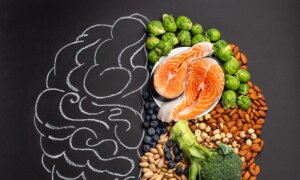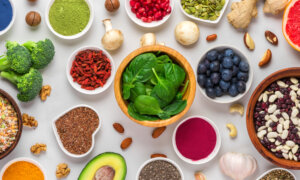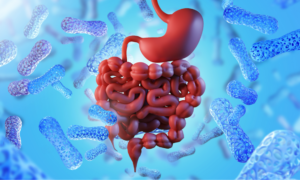Joy can uplift our mood and support overall health, but both Traditional Chinese Medicine (TCM) and Western medicine recognize that excessive joy may adversely affect the heart. Thus, implementing practical strategies to cultivate inner calm in various situations can promote better heart health.
The Potential Harm of Excessive Joy
A notable case study involves Mr. Lee, who unexpectedly received a promotion at work, which filled him with immense joy. However, this overwhelming elation triggered distressing symptoms such as heart palpitations, insomnia, and even anxiety.
According to TCM, emotions and physical health are intricately linked. Seven main emotions—joy, anger, worry, anxiety, sadness, fear, and fright—are closely associated with specific organs in the body. Prolonged excitement or sudden, intense joy can have negative effects on the heart.
In TCM philosophy, the heart governs the mind, playing a central role in regulating mental, emotional, and cognitive activities. Excessive joy can disrupt the natural flow of energy within the body, potentially leading to restlessness, insufficient blood supply to the heart, or impaired blood circulation. Consequently, this imbalance may also trigger a range of health issues.
From a medical perspective, extreme joy can overstimulate the sympathetic nervous system, resulting in an increased heart rate and elevated blood pressure, which are normal physiological responses to excitement. However, studies have shown that mood swings are significant contributors to cardiovascular diseases, such as coronary artery disease, myocardial infarction (heart attack), heart failure, and stroke. This risk becomes particularly pronounced in people with hypertension (high blood pressure), who are more susceptible to conditions like myocardial infarction and stroke.
With treatment from TCM, Mr. Lee gradually regained his health.
Effective Ways to Manage Emotions
Another compelling case involves Anna, who experienced a sudden spike in heart rate and blood pressure after winning the lottery, accompanied by chest pain and tightness. Her initial joy quickly turned into intense panic and tension, highlighting the importance of managing emotions effectively.
Spirituality
Developing a positive outlook rooted in spirituality can promote inner peace and help mitigate the harmful effects of excessive emotions.
After experiencing the symptoms mentioned earlier, Anna began managing her emotions through meditation techniques. Practices such as prayer and expressing gratitude played a significant role in helping her maintain emotional stability.
Biblical and Stoic Perspectives
Both Eastern and Western traditions offer profound teachings on spirituality. For instance, the Bible emphasizes humility, gratitude, finding joy in simple blessings, while also underscoring the importance of inner peace and trust in God.
Similarly, Stoicism teaches people to focus on what they can control while accepting what they cannot. Practicing this approach helps them cope more effectively with the present moment. By embracing Stoic principles, people can find peace amid life’s ups and downs.
Buddhism and Taoism
Eastern philosophies also offer many teachings. Buddhism introduces the concept of impermanence, encouraging people to relinquish material desires in pursuit of inner peace. This reflects the principle of “neither rejoicing over external gains nor grieving over personal losses.”
Additionally, Taoism, as taught by Laozi, highlights the significance of softness and harmony, advocating for a natural way of life—“going with the flow”—and avoiding excessive pursuit of material possessions.
Tools for Emotional Regulation
Practices such as meditation, mindfulness, tai chi, and qigong can help maintain emotional stability and prevent extreme mood swings, ultimately fostering a deep sense of inner peace.
However, many people struggle to achieve mental clarity during meditation because their daily lives are overwhelmed by constant tasks and thoughts, creating a strong sense of attachment. This mental clutter can often hinder relaxation. From this perspective, the practice of meditation becomes even more important for maintaining mental well-being.
A 2015 systematic review indicated that mindfulness-based cognitive therapy can improve mental health by reducing anxiety, lowering the incidence of negative thoughts and unhelpful emotional reactions to stress. Similarly, a 2023 meta-analysis highlighted that mindfulness yoga practices can enhance emotional resilience, improve mental health, and boost cardiopulmonary function.
Some people explore modern spiritual practices, such as Falun Gong, to gain deeper insights into the relationship between “gain” and “loss.” In this practice, gain and loss are viewed as interconnected, helping practitioners maintain a balanced mindset. Additionally, Falun Gong incorporates gentle exercises and meditation techniques that promote physical health.
A 2020 study involving more than 1,000 Taiwanese Falun Gong practitioners found that people with chronic conditions, including as heart disease, diabetes, lung issues, and high blood pressure, experienced a 70 percent to 89 percent improvements or recoveries after practicing Falun Gong.
Sleep and Digital Detox
Ensuring adequate sleep is another highly effective way to care for your heart. It is recommended by TCM not only to get enough sleep but also to rest during the optimal hours, specifically between 11 p.m. and 3 a.m. This is rooted in the TCM concept of the 12-hour organ clock, which associates specific times with the peak activity of different organs.
The 12-hour organ clock in TCM is a framework that maps the flow of qi (vital energy) through the body’s major organs at specific times of the day and night. Each organ is most active and functions optimally for two hours during a 24-hour cycle. This clock reflects the body’s natural rhythms and highlights the interconnectedness of health, lifestyle, and energy flow.
In TCM, sleep between 11 p.m. and 3 a.m. aligns with the body’s organ clock, optimizing the function of the gallbladder (11 p.m.–1 a.m.) and liver (1 a.m.–3 a.m.). During this time, the gallbladder supports emotional stability and decision-making, while the liver detoxifies the body, regulates blood flow, and harmonizes emotions.
This period also promotes the balance of yin and yang, as yin energy peaks and transitions into yang. Disrupting this cycle by staying awake can lead to poor detoxification, emotional imbalance, and stress on the heart. Sleeping during these hours supports heart health, emotional well-being, and overall rejuvenation.
Engaging in a digital detoxing, which involves limiting screen time on devices such as phones, computers, and TVs, is equally important. Prolonged exposure to these devices overstimulates the sympathetic nervous system, prompting the body to produce excessive toxins and stress hormones.
Supporting Heart Health Through Diet
Dietary adjustments can also address the harmful effects of excessive joy. For instance, during summer, eating soups made with mung beans, lotus seeds, lily bulbs, or snow fungus can help clear internal heat and nourish the heart. In TCM, “clearing heat” refers to reducing excess internal heat, or yang energy, in the body. From a modern medical perspective, this can be understood as alleviating inflammatory states caused by overactivation of the sympathetic nervous system. By making simple dietary changes, you can stabilize your emotions and improve your heart health.
Lotus Seed and Lily Bulb Soup
Ingredients:
- 1.06 ounces (30 grams) lotus seeds, with the cores removed
- 0.35 ounces (10 grams) dried lily bulbs
- 0.35 ounces (10 grams) red dates
- 34 fluid ounces (1000 milliliters) water
Preparation:
- Place the lotus seeds, lily bulbs, and red dates in a pot.
- Add the water and bring it to a boil.
- Reduce to low heat and simmer for 40 minutes.
- Serve warm.
Lotus seeds are
rich in phenolic compounds, which provide antioxidant, immunomodulatory, and neuroprotective benefits. In TCM, lotus seeds are commonly used to calm the mind, nourish the heart, and support kidney health.
Lily bulbs are valued for their ability to soothe the lungs, alleviate coughs, and relieve mental stress. Research has also shown that lily bulbs have anti-tumor, anti-inflammatory, and anti-depressant properties.
Snow Fungus Soup
Ingredients:
- 0.71 ounces (20 grams) snow fungus
- 20 red dates
- 34 fluid ounces (1000 milliliters) water
Preparation:
- Place the snow fungus and red dates in a pot.
- Add the water and simmer for 30 minutes.
Note: Sugar is not necessary as red dates provide natural sweetness. However, if you prefer a sweeter taste, you can add a small amount of rock sugar.
Snow fungus has been used in traditional dietary therapy for thousands of years. Research indicates that the polysaccharides in snow fungus can inhibit cancer cell growth, boost immune function, and provide neuroprotective benefits. Studies with mice have also been shown to protect heart muscle cells from oxidative damage in aging.
Summary
Healthy lifestyle habits, including regular exercise, a balanced diet, and adequate sleep, all play a vital role in supporting heart health. By integrating TCM, modern medical approaches, and positive spiritual practices, we can embrace the joys of life while maintaining inner peace—a key to health and longevity.
While some herbs mentioned in this article may be unfamiliar, they are generally available in health food stores and Asian grocery stores. It is important to note that treatment methods may vary by individual, and consulting a health care professional for personalized treatment plans is advisable.












